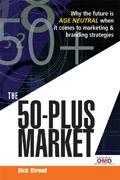 AARP and Home Depot have put together a few free home-improvement workshops for Baby Boomers
AARP and Home Depot have put together a few free home-improvement workshops for Baby Boomers. (They're scheduled for October 11th, so I don't know how long the info will be on the page.)
It's a good idea, and good marketing.
HGTV is a big hit with 50+ folks (although you'd never know it if you watched.)
Even I've been doing some home-improving. Although banished from a recent 'insta-floor' laying, a paint roller was slapped into my hands for some ceiling and wall work. After the project was finished, I really didn't feel any sort of 'sense of accomplishment' - but what I did get out of it was a great Jackson Pollocky shirt I wear whenever I go to a hardware store or art museum. It commands respect.
The
web page for AARP/Home Depot is a bit insipid - at least the flash presentation is. Three rotating pictures: one of a couple holding paint brushes (good - but their shirts don't look anything like mine), one of a couple goofing around with a garden hose, and one of a lady changing a light bulb - her husband cheerfully holding the ladder.
If there were five or six rotating pics, the garden hose one would be fine. But since it's one of only three, it doesn't work. And the light bulb one, of course, reminds me of that old joke, "How many Baby Boomers does it take…?"
I guess Home Depot and AARP think Baby Boomers need to take a course on how to change a light bulb. Or maybe the course is about how to hold a ladder.
I bet their ad agency could've come up with more realistic (and less demeaning) scenarios.
 The other day I had a spirited chat with Pete Gammell, Editor/Producer for Seattle's KIRO 710. Then he fashioned my ramblings into something worth listening to (along with adding his own astute comments). The 'special report' aired a bunch of times on Thursday, October 27th.
The other day I had a spirited chat with Pete Gammell, Editor/Producer for Seattle's KIRO 710. Then he fashioned my ramblings into something worth listening to (along with adding his own astute comments). The 'special report' aired a bunch of times on Thursday, October 27th.








